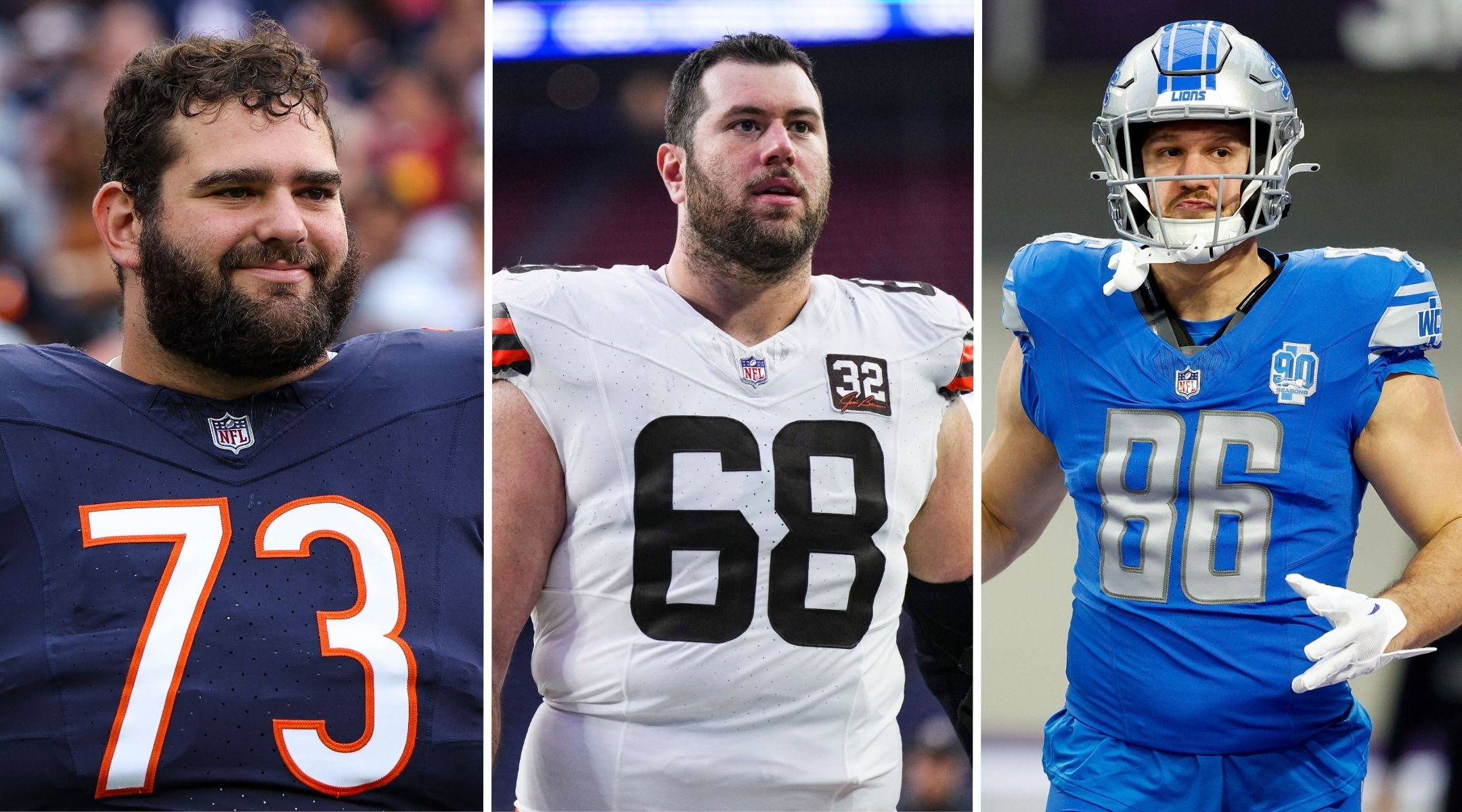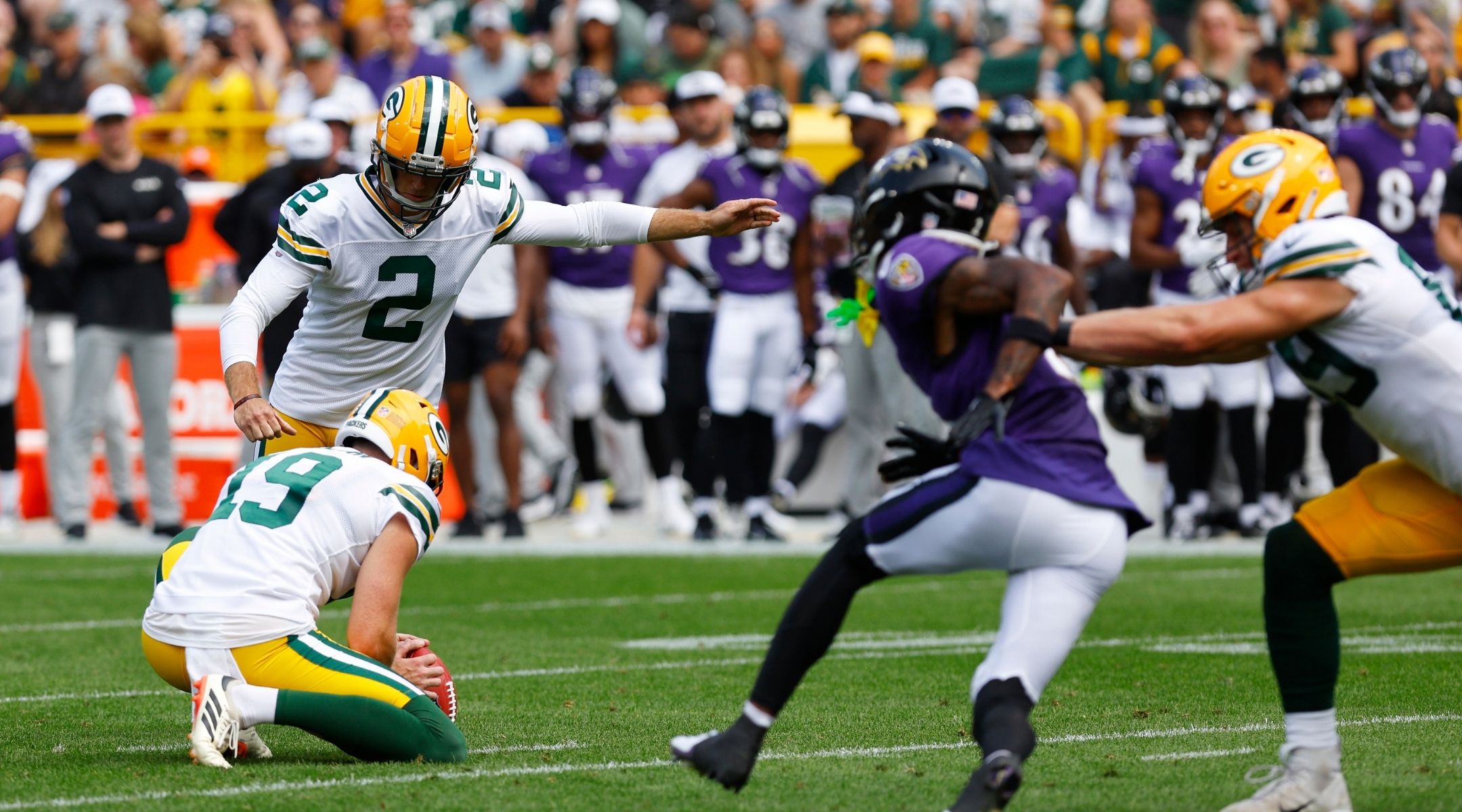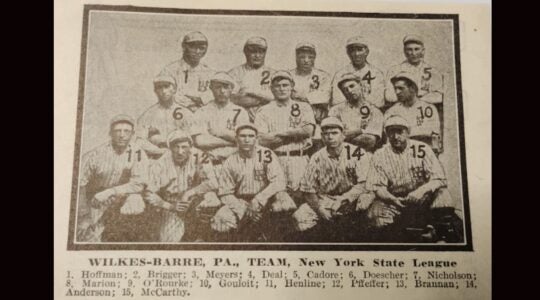As of Tuesday night, exactly nine days before the NFL season kicks off, Greg Joseph was slated to be the starting kicker for the Green Bay Packers.
At the time, Joseph’s position put him in a category of one: The only openly Jewish player who would appear in the league’s first week.
Then, on Wednesday, Joseph was released.
That roster move means that when the football season begins on Sept. 5 — followed by a full lineup of games the following Sunday — no publicly Jewish players will be taking the field for any of the NFL’s 32 teams.
That’s a change from last season, when five Jewish players got on the gridiron, including three in Week 1. Four of those players could still return later this season. The fifth is out for the year with an injury.
Joseph’s release came after he appeared to have won the job out of the Packers’ training camp. He came to Green Bay after three years with the Minnesota Vikings, and was in the bottom tier of starting kickers last year, making 24 field goals in 30 attempts — though he was stronger on extra points, nailing 36 of 38. Now, he will be looking to join another team’s active roster or practice squad.
If he does lace up for his sixth NFL season, Joseph will bring an extensive Jewish background to whichever team he joins. The South Africa native who moved to Florida as a child is a Jewish day school alum, and has gotten involved in the local Jewish community at each stop of his NFL career (which took him to Cleveland and Tennessee before Minnesota).
Joseph has also been a vocal supporter of Israel. Following Hamas’ Oct. 7 attack, he launched a “Kicks for Israel” campaign, raising money for Israel’s national food bank. And during the NFL’s “My Cause, My Cleats” program last winter, Joseph wore cleats displaying Stars of David and the phrases “I Stand with Israel” and “Am Yisrael Chai,” Hebrew for “the nation of Israel lives.” He then kicked a 36-yard game-winning field goal, a number steeped with Jewish significance.

L-R: NFL veterans Jake Curhan, Michael Dunn and Anthony Firkser. (Getty Images)
Another Jewish player looking to take the field is offensive tackle Jake Curhan, who joined the Chicago Bears this summer after three years with the Seattle Seahawks. Curhan was cut Tuesday but later signed on with the team’s practice squad, which means he could make the Bears’ NFL roster at some point this season.
Curhan, 26, who has played in 29 career games over those three seasons, grew up attending Camp Young Judaea in New Hampshire and went by the moniker “Bear Jew” during his collegiate career at the University of California, Berkeley. The name is both a play on Cal’s team name (the Golden Bears) and a reference to a burly soldier in Quentin Tarantino’s 2009 film “Inglourious Basterds.” If he cracks Chicago’s roster, the nickname will become newly appropriate.
Cleveland Browns offensive lineman Michael Dunn is also a candidate to return later this season. Dunn, 30, has appeared in 40 games across four seasons with the Browns, but the club placed him on the reserve/non-football illness list Tuesday. He is eligible to return after four games.
Tight end Anthony Firkser has appeared in 71 games across six NFL seasons, but the 29-year-old Harvard alum is starting his second straight season without a team. Firkser, who had a bar mitzvah growing up in New Jersey, joined the New York Jets during the preseason but did not make the final roster. Firkser played five games with the Detroit Lions last season — including three in the postseason — after spending the preseason with the New England Patriots.
One Jewish player who is guaranteed not to appear in the 2024-2025 season is Packers running back A.J. Dillon, who is out for the year with a neck injury.
Dillon, 26, has 18 career touchdowns across four seasons with Green Bay. The Baltimore native spoke at a Jewish teen convention in his hometown in 2022, where he opened up about his experience as a Jew of color.
JTA has documented Jewish history in real-time for over a century. Keep our journalism strong by joining us in supporting independent, award-winning reporting.






